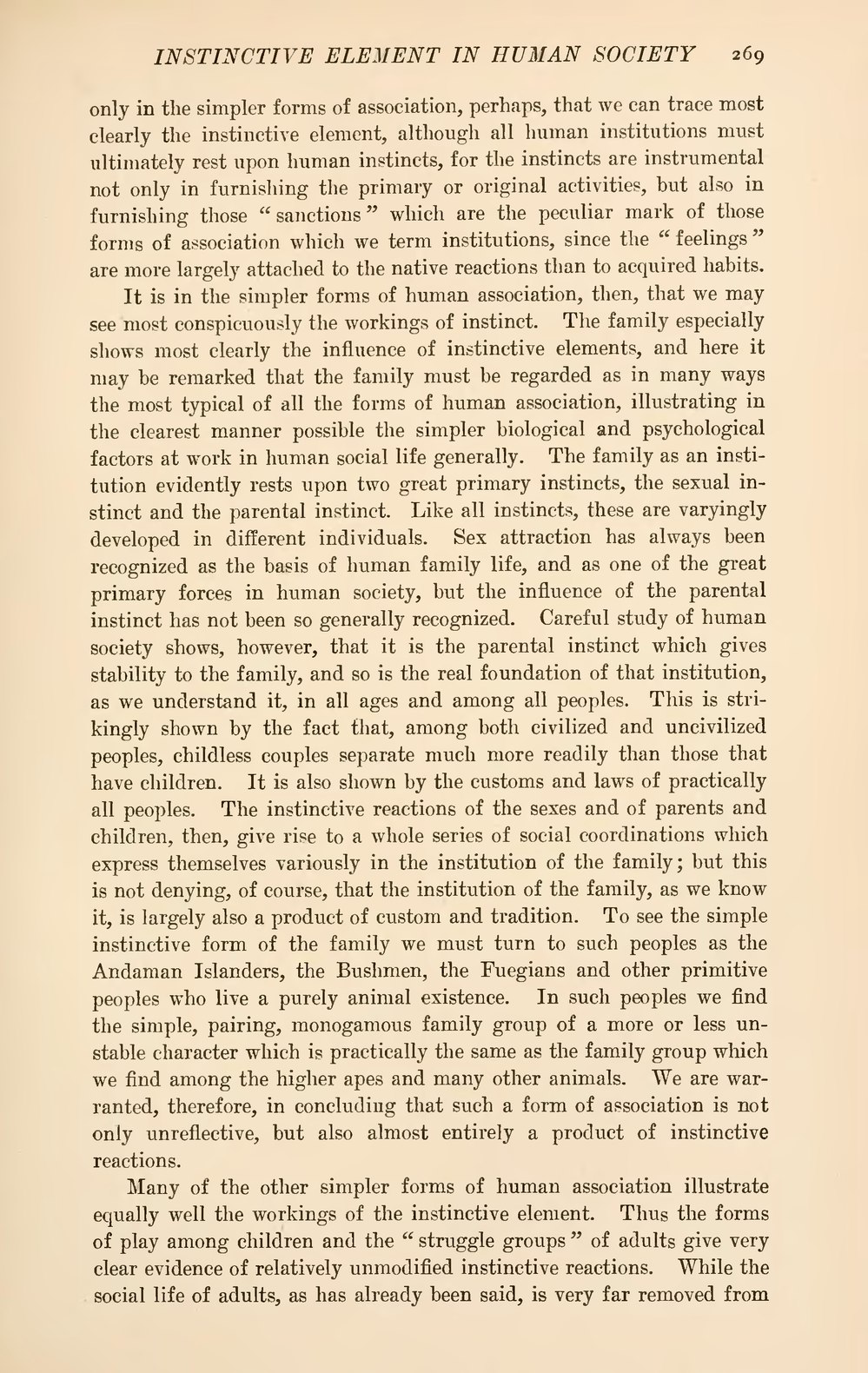only in the simpler forms of association, perhaps, that we can trace most clearly the instinctive element, although all human institutions must ultimately rest upon human instincts, for the instincts are instrumental not only in furnishing the primary or original activities, but also in furnishing those "sanctions" which are the peculiar mark of those forms of association which we term institutions, since the "feelings" are more largely attached to the native reactions than to acquired habits.
It is in the simpler forms of human association, then, that we may see most conspicuously the workings of instinct. The family especially shows most clearly the influence of instinctive elements, and here it may be remarked that the family must be regarded as in many ways the most typical of all the forms of human association, illustrating in the clearest manner possible the simpler biological and psychological factors at work in human social life generally. The family as an institution evidently rests upon two great primary instincts, the sexual instinct and the parental instinct. Like all instincts, these are varyingly developed in different individuals. Sex attraction has always been recognized as the basis of human family life, and as one of the great primary forces in human society, but the influence of the parental instinct has not been so generally recognized. Careful study of human society shows, however, that it is the parental instinct which gives stability to the family, and so is the real foundation of that institution, as we understand it, in all ages and among all peoples. This is strikingly shown by the fact that, among both civilized and uncivilized peoples, childless couples separate much more readily than those that have children. It is also shown by the customs and laws of practically all peoples. The instinctive reactions of the sexes and of parents and children, then, give rise to a whole series of social coordinations which express themselves variously in the institution of the family; but this is not denying, of course, that the institution of the family, as we know it, is largely also a product of custom and tradition. To see the simple instinctive form of the family we must turn to such peoples as the Andaman Islanders, the Bushmen, the Fuegians and other primitive peoples who live a purely animal existence. In such peoples we find the simple, pairing, monogamous family group of a more or less unstable character which is practically the same as the family group which we find among the higher apes and many other animals. We are warranted, therefore, in concluding that such a form of association is not only unreflective, but also almost entirely a product of instinctive reactions.
Many of the other simpler forms of human association illustrate equally well the workings of the instinctive element. Thus the forms of play among children and the "struggle groups" of adults give very clear evidence of relatively unmodified instinctive reactions. While the social life of adults, as has already been said, is very far removed from
